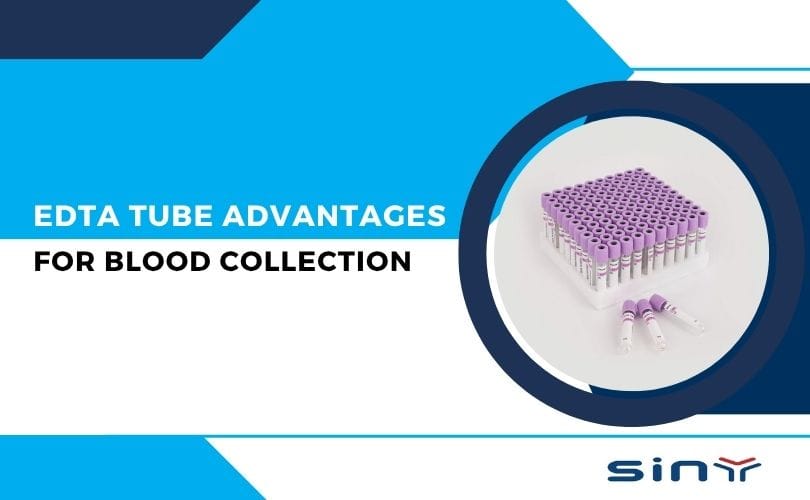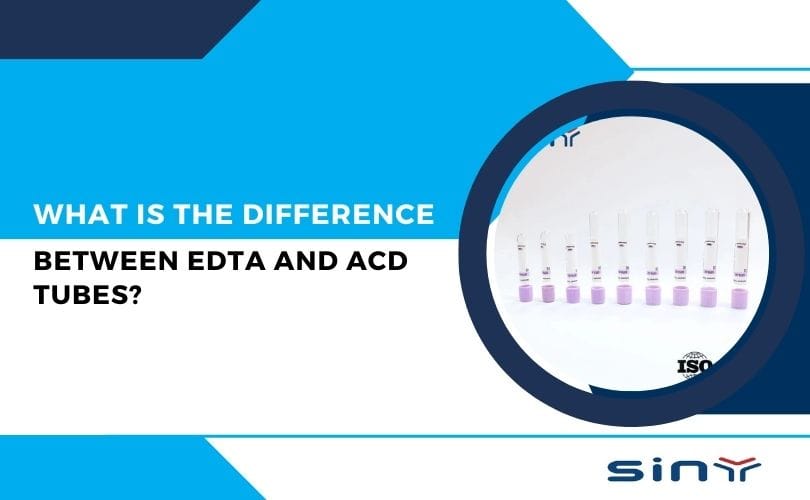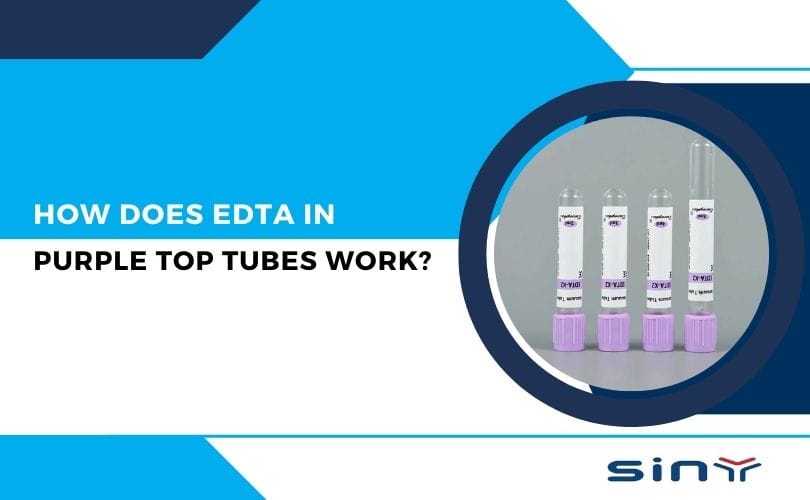Blood collection is a fundamental procedure in clinical diagnostics and medical research. Among the various types of blood collection tubes available, EDTA tubes (Ethylenediaminetetraacetic acid tubes) are widely preferred due to their unique properties that preserve blood samples effectively. These tubes, often recognized by their purple or lavender tops, play a crucial role in hematological testing, genetic studies, and molecular diagnostics.
What is an EDTA Tube?
An EDTA tube is a specialized blood collection tube containing the anticoagulant EDTA, which prevents blood clotting by binding calcium ions essential for the coagulation cascade. This property makes EDTA tubes indispensable for collecting whole blood samples that require preservation of cellular components and nucleic acids for accurate analysis. The tubes are typically color-coded with purple or lavender tops to help healthcare providers identify them easily during blood collection procedures.

EDTA’s unique chemical structure allows it to chelate metal ions, particularly calcium, effectively halting the clotting process immediately after blood collection. This ensures that blood remains in a fluid state, preserving the morphology and count of red blood cells, white blood cells, and platelets, which is crucial for many laboratory tests.
For high-quality EDTA tubes and related products, visit EDTA Tube Products and explore options suitable for your clinical or research needs.
Key Advantages of EDTA Tubes for Blood Collection
Superior Anticoagulation Properties
EDTA Tube Advantages for Blood Collection is one of the most effective anticoagulants, ensuring that blood samples remain liquid and clot-free for extended periods. Unlike heparin or citrate tubes, EDTA provides minimal interference with cellular morphology, making it ideal for hematology tests.
Preserves Cellular Integrity
EDTA prevents platelet clumping and maintains RBC, WBC, and platelet integrity, which is crucial for accurate CBC analysis. This makes EDTA tubes the gold standard for hematological examinations.
Ideal for Molecular Biology Studies
Since EDTA inhibits nucleases, it is widely used in DNA and RNA extraction for genetic testing, PCR, and next-generation sequencing (NGS). Researchers rely on EDTA tubes for high-quality nucleic acid preservation.
Long-Term Sample Stability
Blood stored in EDTA tubes remains stable for 24-48 hours at room temperature, and up to 72 hours when refrigerated. For more details, read our guide on How Long Can Blood Be Stored in EDTA Tubes?
Compatibility with Automated Analyzers
EDTA tubes are designed to work seamlessly with automated hematology analyzers, reducing manual errors and improving lab efficiency.
Less Risk of Sample Rejection
Clotted or degraded samples lead to test repeats, wasting both time and money. EDTA tubes ensure high-quality, clot-free samples, reducing rejection rates and improving diagnostic accuracy.
Cost-Effective for High-Volume Labs
Due to their widespread use, EDTA tubes are affordable and available in bulk, making them a cost-effective choice for hospitals and research centers.
For a full range of EDTA tubes, explore our products section.
Applications of EDTA Tubes in Clinical and Research Settings
A. Clinical Diagnostics
- Complete Blood Count (CBC) – Essential for detecting anemia, infections, and blood disorders.
- Blood Smears – Used in diagnosing malaria, leukemia, and other blood-related diseases.
- Flow Cytometry – EDTA-preserved samples are ideal for immunophenotyping.
B. Research and Biotechnology
- Genomic Studies – EDTA tubes are used in DNA extraction for genetic research.
- Forensic Analysis – Helps preserve blood samples for paternity testing and crime investigations.
- Pharmacokinetics – Used in drug development studies to analyze blood components.
For specialized purple-top blood collection tubes, visit this link.
EDTA Tubes in Biomedical and Molecular Research
Research labs worldwide depend on high-quality EDTA tubes to ensure that blood samples used for molecular and genetic studies remain intact. Here’s why:
Preservation of nucleic acids: EDTA stabilizes blood at the molecular level, crucial for gene sequencing.
No enzyme activation: EDTA inhibits metal-dependent enzymes, helping preserve protein structures for proteomics.
Reliable transport: Even under sub-optimal transport conditions, EDTA tubes maintain sample quality better than other anticoagulants.
Labs and institutions increasingly prefer Siny Medical’s EDTA tubes due to their dependable performance and compliance with international standards.
Best Practices for Using EDTA Tubes
Gently invert tubes 8–10 times after collection. Never shake!
Label immediately to avoid mix-ups.
Store samples upright at recommended temperatures.
Avoid overfilling or underfilling—both affect test accuracy.
These small but crucial steps go a long way in maintaining sample integrity and improving diagnostic reliability.
Trusted Providers and Where to Buy
Choosing a reliable supplier can make all the difference. EDTATube.com stands out as a leading manufacturer and distributor of EDTA tubes. Whether you’re a hospital, clinic, or academic research center, you’ll find everything from bulk supply options to specialized pediatric tubes.
Also check Siny Medical’s product listing for alternative options and to compare international pricing.
Summary
EDTA tubes offer numerous advantages for blood collection in both clinical and research settings. Their ability to prevent clotting by chelating calcium ions ensures that blood samples remain fluid and stable, preserving the morphology and integrity of blood cells. This makes EDTA tubes the preferred choice for hematological tests such as Complete Blood Count (CBC), molecular diagnostics including genetic testing, and blood banking procedures.
The availability of different EDTA tube types (K2 and K3) and color-coded tops further enhances their versatility and ease of use. Their cost-effectiveness, compatibility with automated analyzers, and suitability for extended sample storage make EDTA tubes indispensable tools in modern laboratory medicine.
For high-quality EDTA tubes and bulk supply options, visit EDTA Tube Official Site. For inquiries or customized orders, contact EDTA Tube Contact.
FAQs
What color cap is an EDTA tube?
The EDTA tube typically has a lavender or purple cap and is used for hematology tests.
Can EDTA tubes be reused?
Absolutely not. These tubes are single-use only to maintain sterility and accuracy.
How long can blood be stored in EDTA tubes?
Depending on the test, blood can be stored for 24–72 hours at 4°C, or longer for DNA/RNA testing. More info here.
Can I use EDTA tubes for plasma collection?
Yes, EDTA tubes can be used to collect plasma samples, especially for toxicology or molecular studies.
Where can I buy bulk EDTA tubes?
Visit Bulk EDTA Tube Supply to explore cost-effective options.







